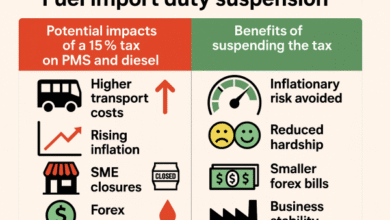NEPC sensitises exporters on minimisation of aflatoxin on exportable products

The Nigerian Export Promotion Council (NEPC) has sensitised exporters on the need to minimise aflatoxin contamination on exportable agricultural products.
The Executive Director of the NEPC, Nonye Ayeni, who spoke on Thursday at the one-day workshop in Owerri, said that the sensisitisation was necessary.
He explained that aflatoxins, a group of toxic and carcinogenic compounds produced by certain mold species, posed a significant threat to human health, food security and trade.
Hunger: Adoption of CNG initiative will crash food prices – FCCPC
Ayeni, who was represented by the NEPC Coordinator in Imo, Mr Anthony Ajuruchi, said that the impact of aflatoxin contamination was felt across the value chain.
According to him, the toxins effect not only human health but also the economy and trade.
“According to International Institute of Tropical Agriculture (IITA) and the Ministry of Agriculture, the annual loss of agricultural exports in Nigeria due to aflatoxin contamination is estimated to be around 200 million dollars to 300 million dollars (approximately N462 billion).
“The figure represents 10 to 20 per cent of Nigeria’s total agricultural exports.
“In Africa and some other parts of the world, aflatoxin contamination is a major concern with many countries struggling to meet international standards for food safety.
“Aflatoxin impacts negatively on the safety and overall quality of our agricultural products and contributes largely to rejection of Nigeria’s export products.’’
Ayeni, therefore, called for more research, technologies and best practices in aflatoxin management–from farm to table while commending exporters in Imo for continuously striving to keep the state on the export map.
“It will be imperative to inform us that some of us are trying to keep Imo on the export map.
“Between 2023 and June 2024, exporters from Imo generated about N1.31 billion through exports of agric produce, foot-wears and some minerals to China, U.S., Canada, the UK and other places.
“Our desire is to double our current figure by the end of this year,” he said.
Mrs Mercy Ndukwe, the Imo Coordinator, National Agency for Food and Drugs Administration and Control (NAFDAC), was present at the workshop.
Also present was Rex Anunobi, the Imo Commissioner for Trade, Commerce and Investment, represented by the acting Permanent Secretary of the ministry, Mr Basil Iwu.
No fewer than 50 participants comprising farmers, processors and exporters of agricultural food products also participated in the workshop.
Representatives of the Raw Materials Research and Development Council (RMRDC) in Imo also attended the training.











